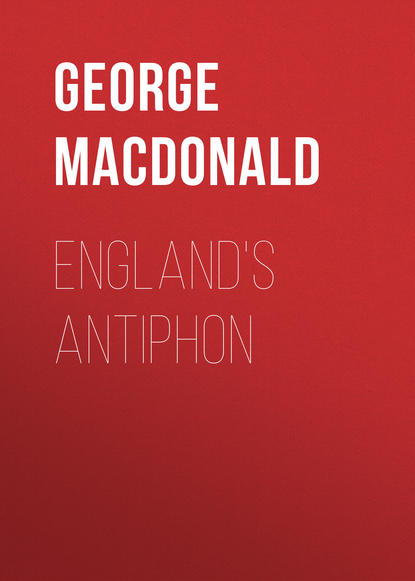По всем вопросам обращайтесь на: info@litportal.ru
(©) 2003-2025.
✖
England's Antiphon
Настройки чтения
Размер шрифта
Высота строк
Поля
"Weak cottage where our souls reside!
This flesh a tottering wall!
With frightful breaches gaping wide,
The building bends to fall.
"All round it storms of trouble blow,
And waves of sorrow roll;
Cold waves and winter storms beat through,
And pain the tenant-soul.
"Alas, how frail our state!" said I,
And thus went mourning on;
Till sudden from the cleaving sky
A gleam of glory shone.
My soul all felt the glory come,
And breathed her native air;
Then she remembered heaven her home,
And she a prisoner here.
Straight she began to change her key;
And, joyful in her pains,
She sang the frailty of her clay
In pleasurable strains.
"How weak the prison is where I dwell!
Flesh but a tottering wall!
The breaches cheerfully foretell
The house must shortly fall.
"No more, my friends, shall I complain,
Though all my heart-strings ache;
Welcome disease, and every pain
That makes the cottage shake!
"Now let the tempest blow all round,
Now swell the surges high,
And beat this house of bondage down
To let the stranger fly!
"I have a mansion built above
By the eternal hand;
And should the earth's old basis move,
My heavenly house must stand.
"Yes, for 'tis there my Saviour reigns—
I long to see the God—
And his immortal strength sustains
The courts that cost him blood.
"Hark! from on high my Saviour calls:
I come, my Lord, my Love!
Devotion breaks the prison-walls,
And speeds my last remove."
His psalms and hymns are immeasurably better than his lyrics. Dreadful some of them are; and I doubt if there is one from which we would not wish stanzas, lines, and words absent. But some are very fine. The man who could write such verses as these ought not to have written as he has written:—
Had I a glance of thee, my God,
Kingdoms and men would vanish soon;
Vanish as though I saw them not,
As a dim candle dies at noon.
Then they might fight and rage and rave:
I should perceive the noise no more
Than we can hear a shaking leaf
While rattling thunders round us roar.
Some of his hymns will be sung, I fancy, so long as men praise God together; for most heartily do I grant that of all hymns I know he has produced the best for public use; but these bear a very small proportion indeed to the mass of his labour. We cannot help wishing that he had written about the twentieth part. We could not have too much of his best, such as this:
Be earth with all her scenes withdrawn;
Let noise and vanity begone:
In secret silence of the mind
My heaven, and there my God, I find;
but there is no occasion for the best to be so plentiful: a little of it will go a great way. And as our best moments are so few, how could any man write six hundred religious poems, and produce quality in proportion to quantity save in an inverse ratio?
Dr. Thomas Parnell, the well-known poet, a clergyman, born in Dublin in 1679, has written a few religious verses. The following have a certain touch of imagination and consequent grace, which distinguishes them above the swampy level of the time.
HYMN FOR EVENING
The beam-repelling mists arise,
And evening spreads obscurer skies;
The twilight will the night forerun,
And night itself be soon begun.
Upon thy knees devoutly bow,
And pray the Lord of glory now
To fill thy breast, or deadly sin
May cause a blinder night within.
And whether pleasing vapours rise,
Which gently dim the closing eyes,
Which make the weary members blest
With sweet refreshment in their rest;
Or whether spirits[158 - The animal spirits of the old physiologists.] in the brain
Dispel their soft embrace again,
And on my watchful bed I stay,
Forsook by sleep, and waiting day;
Be God for ever in my view,
And never he forsake me too;
But still as day concludes in night,











